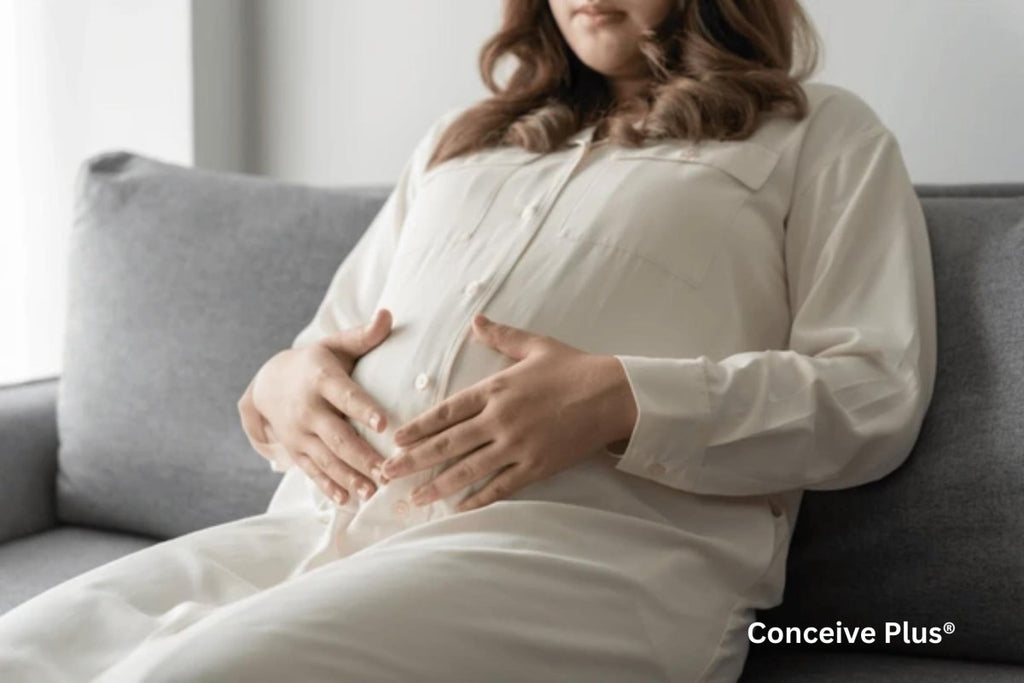Women Age: The Impact of Age on Women's Health and Vitality

As women progress through various stages of life, age plays a significant role in shaping health, vitality, and overall well-being. From early adulthood through menopause and beyond, each chapter brings changes that affect physical, emotional, and reproductive health. Understanding these shifts can help women make informed choices to support a healthy and fulfilling life.
How Age Influences Reproductive Health
A woman’s reproductive years are typically between the ages of 15 and 49, a span often referred to as the reproductive age. During this period, fertility is at its peak, but it naturally declines with time. Women are born with a finite number of eggs (about 1 to 2 million), and by the time they reach puberty, this number decreases to approximately 300,000 to 400,000. As women age, both the quantity and quality of these eggs diminish.[1]
Fertility starts to decline significantly after the age of 35. By 40, the chances of natural conception decrease considerably. This decline is linked to increased risks of genetic abnormalities, such as Down syndrome, and a higher likelihood of miscarriage. Advances in reproductive technology, including egg freezing and in-vitro fertilization (IVF), offer options for women who wish to extend their modern fertility beyond their reproductive age.
Hormonal Changes Through the Ages
Hormones play a crucial role in a woman’s health, and they fluctuate significantly over time. In the reproductive years, estrogen and progesterone regulate menstrual cycles and support fertility. These hormones also contribute to bone density, heart health, and skin elasticity.
As women enter their late 40s and early 50s, they typically experience perimenopause—the transitional period before menopause. During this phase, hormone levels fluctuate, causing symptoms such as hot flashes, mood swings, and irregular periods. Menopause, defined as 12 consecutive months without a period, marks the end of a woman’s reproductive age. This phase usually occurs around 51 years old, though it can vary. These changes are also a result of female reproductive issues that naturally occur with aging.[2]
Post-menopausal women experience a decline in estrogen, increasing the risk of osteoporosis, cardiovascular disease, and vaginal atrophy. Hormone replacement therapy (HRT) can help mitigate these symptoms, but it’s essential to discuss potential risks and benefits with a healthcare provider.
The Age of a Woman and Bone Health
Bone health is intricately tied to the age of a woman. Peak bone mass is typically achieved by the late 20s, after which bone density gradually decreases. During menopause, the drop in estrogen accelerates bone loss, increasing the risk of osteoporosis and fractures.
To maintain bone health, women of all ages should focus on adequate calcium and vitamin D intake, weight-bearing exercises, and regular bone density screenings. Early prevention can help reduce the likelihood of fractures and mobility issues later in life.
Cognitive Health and Aging
Cognitive abilities, including memory, attention, and problem-solving skills, evolve as women age. While mild forgetfulness is a normal part of aging, significant cognitive decline is not inevitable. Factors like genetics, lifestyle, and health conditions influence brain health.
Women are at a higher risk for Alzheimer’s disease compared to men, with nearly two-thirds of those diagnosed being female. Hormonal changes during menopause may play a role in this disparity.[3] Maintaining a healthy diet, regular exercise, mental stimulation, and social engagement can support cognitive function and potentially reduce the risk of neurodegenerative diseases.
Emotional Well-Being Across the Lifespan
Emotional health also shifts with age. Younger women may experience higher rates of anxiety and depression due to societal pressures, career demands, or family responsibilities. Women in midlife often face challenges such as caring for aging parents, empty-nest syndrome, and adjusting to menopause.
However, studies suggest that emotional well-being often improves with age. Women in their 50s and beyond frequently report higher levels of life satisfaction and reduced stress compared to their younger counterparts.[4] This increase in well-being is often attributed to greater life experience, personal growth, and a clearer sense of identity.
Supporting Health at Every Age
Healthy aging requires proactive choices. Regardless of the age of a woman, prioritizing physical activity, balanced nutrition, mental health, and regular medical check-ups can help sustain vitality and well-being. Key strategies include:
- Exercise: Regular physical activity reduces the risk of chronic diseases and supports mental health.
- Nutrition: A balanced diet rich in fruits, vegetables, whole grains, and lean proteins supports overall health.
- Mental Health Care: Mindfulness, therapy, and social support networks play vital roles in emotional well-being.
- Preventive Care: Regular screenings for conditions like breast cancer, cervical cancer, osteoporosis, and heart disease are essential for early intervention.
Final Word
The various phases of a women age and life bring inevitable changes, but understanding these shifts empowers women to prioritize their health and well-being. Whether navigating the reproductive years, transitioning through menopause, or embracing the later stages of life, each phase offers opportunities for growth and fulfillment. By addressing health proactively, women can enjoy vitality and resilience at any age.
References:
- Woodruff, T. Making eggs: is it now or later?. Nat Med 14, 1190–1191 (2008). https://doi.org/10.1038/nm1108-1190
- Santoro N. Perimenopause: From Research to Practice. J Womens Health (Larchmt). 2016 Apr;25(4):332-9. doi:10.1089/jwh.2015.5556. Epub 2015 Dec 10. PMID: 26653408; PMCID: PMC4834516.
- Beam CR, Kaneshiro C, Jang JY, Reynolds CA, Pedersen NL, Gatz M. Differences Between Women and Men in Incidence Rates of Dementia and Alzheimer's Disease. J Alzheimers Dis. 2018;64(4):1077-1083. doi:10.3233/JAD-180141. PMID: 30010124; PMCID: PMC6226313.
- Darling, Carol & Coccia, Catherine & Senatore, Natalie. (2012). Women in Midlife: Stress, Health and Life Satisfaction. Stress and health : journal of the International Society for the Investigation of Stress. 28. 31-40. 10.1002/smi.1398.













